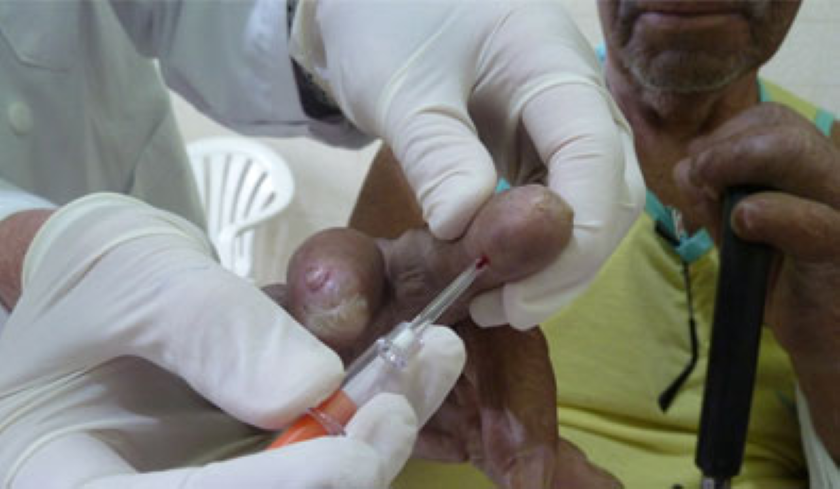Diagnostics and Biomarkers
&width=826&height=464)
Tuberculosis Research
Tuberculosis research at LUMC aims to resolve the huge need for better vaccines, biomarkers and diagnostic tests for tuberculosis.
Worldwide, TB is the leading cause of death among all infectious diseases. One third to one fourth of the world population is infected with M. tuberculosis, every year almost 10 million new cases of active tuberculosis (TB) occur, and 1.8 million people die from TB. There is the increasing threat of antimicrobial resistance: drug-resistant bacterial strains are rapidly emerging, making treatment difficult and sometimes impossible. The importance of researching TB in order to develop better tools to control this killer is obvious, also for the Netherlands with its low TB-incidence.
…Tuberculosis research at LUMC aims to resolve the huge need for better vaccines, biomarkers and diagnostic tests for tuberculosis.
Worldwide, TB is the leading cause of death among all infectious diseases. One third to one fourth of the world population is infected with M. tuberculosis, every year almost 10 million new cases of active tuberculosis (TB) occur, and 1.8 million people die from TB. There is the increasing threat of antimicrobial resistance: drug-resistant bacterial strains are rapidly emerging, making treatment difficult and sometimes impossible. The importance of researching TB in order to develop better tools to control this killer is obvious, also for the Netherlands with its low TB-incidence.
The LUMC TB research group investigates the following key problems in TB:
- Developing better vaccines
- Identification of TB biomarkers
- Developing user and field friendly TB diagnostic tests
- Systems biology approaches in bacterial infections to define new antibiotics
- Diagnostics of latent TB in patients eligible for immunosuppression
Recently, researchers from LUMC, Institute of Biology Leiden, Leiden Academic Center for Drug Research, Leiden Institute of Chemistry started working together in the Leiden interdisciplinary Tuberculosis Consortium (LiTBC).
Leprosy Research
Leprosy is a slow, long-incubated, chronic disease caused by Mycobacterium leprae and posing a significant health threat in developing countries, with 2 to 3 million people worldwide living with leprosy-induced disabilities and its associated social stigmas.
Currently, the diagnosis of leprosy is mainly based on clinical symptoms and detection of the mycobacteria in the skin. A diagnostic tests could contribute significantly both to the detection of leprosy as to the reduction of transmission and the occurrence of nerve damage. Therefore, our department, together with the department of Molecular Cell Biology has developed a lateral flow assays with which biomarkers of the cellular and humoral defenses against M. leprae can be easily detected.
…Leprosy is a slow, long-incubated, chronic disease caused by Mycobacterium leprae and posing a significant health threat in developing countries, with 2 to 3 million people worldwide living with leprosy-induced disabilities and its associated social stigmas.
Currently, the diagnosis of leprosy is mainly based on clinical symptoms and detection of the mycobacteria in the skin. A diagnostic tests could contribute significantly both to the detection of leprosy as to the reduction of transmission and the occurrence of nerve damage. Therefore, our department, together with the department of Molecular Cell Biology has developed a lateral flow assays with which biomarkers of the cellular and humoral defenses against M. leprae can be easily detected.
Our department is an international reference center for immunodiagnostics of leprosy and the only center in the Netherlands where serological determinations for leprosy diagnosis are routinely performed.
Leprosy research at the LUMC is carried out in collaboration with many partners abroad, especially in Brazil, Bangladesh, China, Ethiopia, Nepal and India. We play a leading role within the international IDEAL (Initiative for Diagnostic and Epidemiological Assays for Leprosy) consortium.
&width=826&height=464)